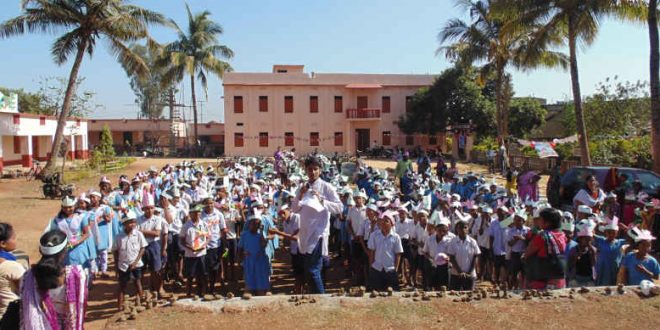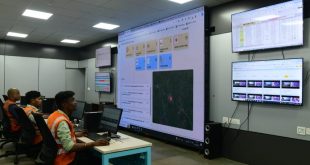Kalinganagar: The ‘Thousand Schools’ project, implemented by Tata Steel in six blocks of Odisha, has helped to bridge the learning gap in government-run primary schools.
A core programme of Corporate Social Responsibility (CSR) initiatives of the company, the programme has succeeded in linking back 10000 out-of-school children back to mainstream education, which is being looked upon as a major achievement towards ensuring upliftment of communities.
In addition, a total of 12705 children of primary classes were assisted as part of this programme to overcome their learning deficits. Overall, about 16000 children were helped to overcome basic deficits of reading, writing and mathematics through 40-day summer camps.
‘Thousand Schools’ project aims at improving quality of education in Odisha’s government primary schools. It has covered over 40,000 children in multifarious forms. Importantly, the transition from primary to middle school is 98 per cent this year.
The programme which made its inception in September 2014 covers six blocks of Odisha, including Danagadi and Sukinda in Jajpur district, Harichandanpur and Joda in Keonjhar district, and Koira and Kutra in Sundargarh district.
It covers about 1,116 Schools in 2,206 habitations spread over 125 Gram Panchayats.
The overall goal of the project is to make Schools Right to Education (RTE) compliant in selected tribal districts of Odisha. It has three core objectives and intends to achieve the same in given time frame.
They include, improving access to school for children, improving quality of education and improving governance of schools.
In order to ensure that no child remains out of school through direct enrollment or bridge courses, a school enrollment drive was undertaken to ensure all children in the age group of 6-8 years are enrolled in school.
Similarly, to address learning gap of never-enrolled and school drop-outs in age group of 9- 14 years, a 6 to 12-month course to bridge the learning gap was imparted through Residential Bridge Course (RBC).
It sought to address longer period of learning deficits among children. The Non-Residential Bridge Course continues to address the shorter period of learning deficits and mainstreams children of the same condition applicable to RBC.
As measures to improve quality of education which is one of the major objectives of the programme, several enrichment programmes are being implemented and libraries set up in Schools to enhance the learning level of children.
Further, to increase participation of community i.e. parents, members of School Management Committee (SMC) and elected members of Panchayatiraj Institutions (PRIs) in School management, training is imparted to members of School Management Committee (SMCs), Parents and PRI members.
Youth Conventions and meeting with SHG Women are also organised to attain the objective. Importantly, out of 2,206 villages and habitations across the six blocks covered by Thousand Schools Project, 1052 are on their way of becoming child labour-free village/habitation as every child begin to attend school.
 Update Odisha-Latest Odisha News I Breaking News Get latest news on Odisha, Govt. Jobs, OSSC, OPSC, Entertainment, Crime, Sports, and Education
Update Odisha-Latest Odisha News I Breaking News Get latest news on Odisha, Govt. Jobs, OSSC, OPSC, Entertainment, Crime, Sports, and Education



